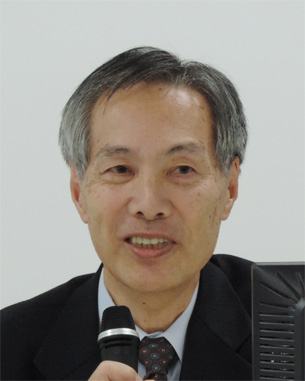
Shin Enosawa, DDS, PhD
From 2011 to 2016, worked as Project Manager for the Highway Project, "Clinical research on human embryonic stem (ES) cell formulations for the treatment of congenital metabolic disorders giving rise to severe hyperammonemia", a research fund awarded to Dr. Akihiro Umezawa.
Akihiro Umezawa, MD, DMSc
From 2012 to 2017, also worked as Deputy Director of the Review Center for Regenerative Medicine of the Pharmaceuticals and Medical Devices Agency (PMDA) in Japan and from 2017 to 2019 as Special Assistant to the President of the PMDA.
Stem cells clinical trial in Japan and brief historical perspective
Shin Enosawa1, Akihiro Umezawa2.
1Center for Regenerative Medicine, National Center for Child Health and Development, Tokyo, Japan; 2Director in Research Institute, National Center for Child Health and Development, Tokyo, Japan
The national large-scale budget to support for the transition to clinical trials has been accelerating since 2011. Of the initial 18 projects of preclinical research, 15 projects have begun clinical trials so far. These include the transplantation of retinal, cardiac, and dopamine-producing cells differentiated from human induced pluripotent stem (iPS) cells and hepatocyte-like cells differentiated from human embryonic stem (ES) cells. The distinctive feature of stem cell research in Japan is the use of iPS cells. Although the advantage of iPS cells in stem cell therapy is the availability of autologous iPS cells that escape from allogeneic immune rejection, the establishment of an iPS cell line is time and cost-consuming especially under good manufacturing practice. In addition, the establishment of a successful iPS cell line is affected by individual differences such as donor age, i.e., patient’s age. Thus, the program shifted to the use of allogeneic iPS cell lines of which the HLA haplotype is homozygous. Currently, GMP-secured homohaplotype iPS cell bank supplies cells for preclinical and clinical studies. In addition, an attempt to produce iPS cells with low alloantigenicity by gene editing is ongoing. The regulation framework was also set up. In 2014, the revised Act on Securing Quality, Efficacy and Safety of Products Including Pharmaceuticals and Medical Devices was enacted and it included two new categories: regenerative medical products and gene therapy products. The former consists of human somatic stem cell- and human somatic cell-processed products at present, while there is no approved product derived from iPS and ES cells at present. A system of conditional and time-limited approval has been introduced for the early application of the products to patients under the coverage of national health insurance if they are considered to be effective. In 2014, the Act on the Safety of Regenerative Medicine was also enforced. This legislation provides legal support to clinical trials that had been previously conducted by ethical guidelines. The pancreatic islet transplantation was authorized by the trials based on this law and is now covered by health insurance. National health insurance covers cell transplantation therapies for the repair and recovery of damaged skin, articular cartilage, and stroke as well as therapies introduced from abroad, such as allogeneic mesenchymal stem cells for graft-versus-host disease and chimeric antigen receptor-T (CAR-T) cell therapy. Based on the previous paper (see recommended readings), we present updated hot information here.
This presentation is based on the knowledge gained through the activities of the Highway Project, "Clinical research on human embryonic stem (ES) cell formulations for the treatment of congenital metabolic disorders giving rise to severe hyperammonemia" awarded to Dr. Akihiro Umezawa from Japan Agency for Medical Research and Development (AMED).
[1] Enosawa S. Clinical Trials of Stem Cell Therapy in Japan: The Decade of Progress under the National Program. J Clin Med. 2022; 11(23): 7030. doi: 10.3390/jcm11237030.